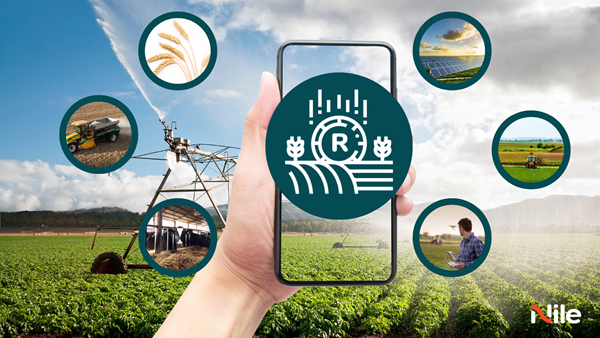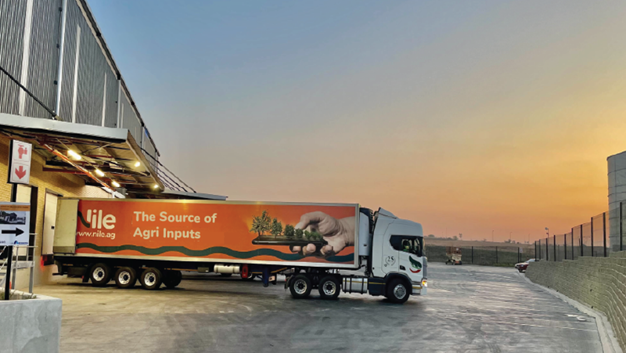"Surely," fresh produce trading platform Nile has been told by farmers, "if I can sell my produce with this level of convenience on your platform, I should also be able to employ this technology to purchase my farm inputs?"
Michael Prinsloo was brought on board to conceptualise and launch a model answering to the needs of farmers, who can survey thousands of agricultural inputs from different suppliers on the Nile Inputs Marketplace. It was launched in October 2023 as a complementary service to the marketing of fresh produce.

"That's the power of a platform such as this: widespread areas get connected."
"All of the inputs needed in bulk – fertilizer, plant nutrition products, protective clothing, harvest tools like scissors or bags, many forms of packaging – are available on our platform. We manage the payments and financing terms, where required," he explains. "We're seeing that farming enterprises are growing larger. With rising input costs, a farmer can't just dash into the local co-op anymore. Our goal is to give them access to more choice when making their input purchases."
Prinsloo notes that most farmers know what they need in terms of fertilisers and packaging; what they need, is someone sorting out the price and logistics.
"Getting two or three quotations for each bulk product takes time. On our platform a farm manager looking for, say, calcium nitrate sees it listed from a variety of suppliers. Their prices are be easily compared – as well as where it is available. If a farmer sees it's at Durban harbour, and he's sending a truck down there anyway, he picks it up there. If he's in Dendron and the supplier is in Limpopo, that could make sense."
But not always: what their platform has shown, he observes, is that sometimes the best price is not from the nearest supplier (or its local agent): some of the Limpopo farmers selling their produce on Nile have found what they need at a better price from suppliers in other provinces.

"It's interesting to see how the platform is opening doors for suppliers, for instance those in the grain industry whose slow periods can now be filled by orders from vegetable farmers. That's the power of a platform such as this: widespread areas get connected."
"Many farmers say they don't want the product's price to be elevated because it includes an element of advice. They'd rather pay separately for advice when they need it. We're not playing in the advice arena, although we have qualified agronomists within the company."
Farmers get bulk advantage directly from supplier
Prinsloo (who, before, worked at Overberg Agri which provides mostly grain farmers with inputs, technical services and financing) remarks that a unique characteristic of the South African industry is the plethora of intermediaries, all of whom take their cut.
"Our drive with the Inputs Marketplace has been twofold: on the one hand the transparency of the process, we lead the farmer to buy directly from companies. Farmers who individually don't buy in very large quantities, can pool together to take advantage of bulk purchases through the Inputs Marketplace. When they bring their produce to Nile, the truck collects their order at the same time. Making use of the backhaul leg has been another big drive for us in setting up this service."
As for financing, unlike banks, Nile quickly makes decisions and can come back with an answer within 24 hours.
"We see the largest requirement of payment terms of 90 to 120 days. Some farmers decide to get their financing elsewhere, that's fine too," he says.
The service is not yet available across the border, but with daily deliveries of fresh produce to clients in Mozambique, Eswatini, Lesotho and Botswana, it fits into Nile's vision of itself as a Pan-African agtech company.
Michael Prinsloo with the founders of Nile, Eugene Roodt and Louis de Kock For more information:
For more information:
Michael Prinsloo
Nile Inputs Marketplace
Tel: +27 65 735 7581
Email: info@nile.ag
https://nile.ag/
